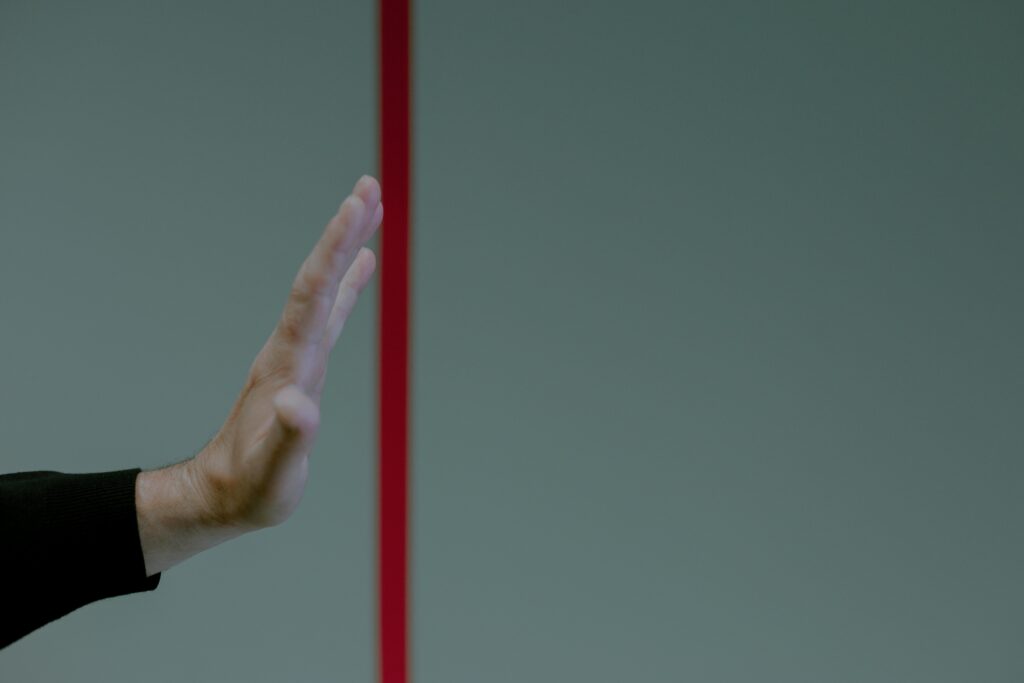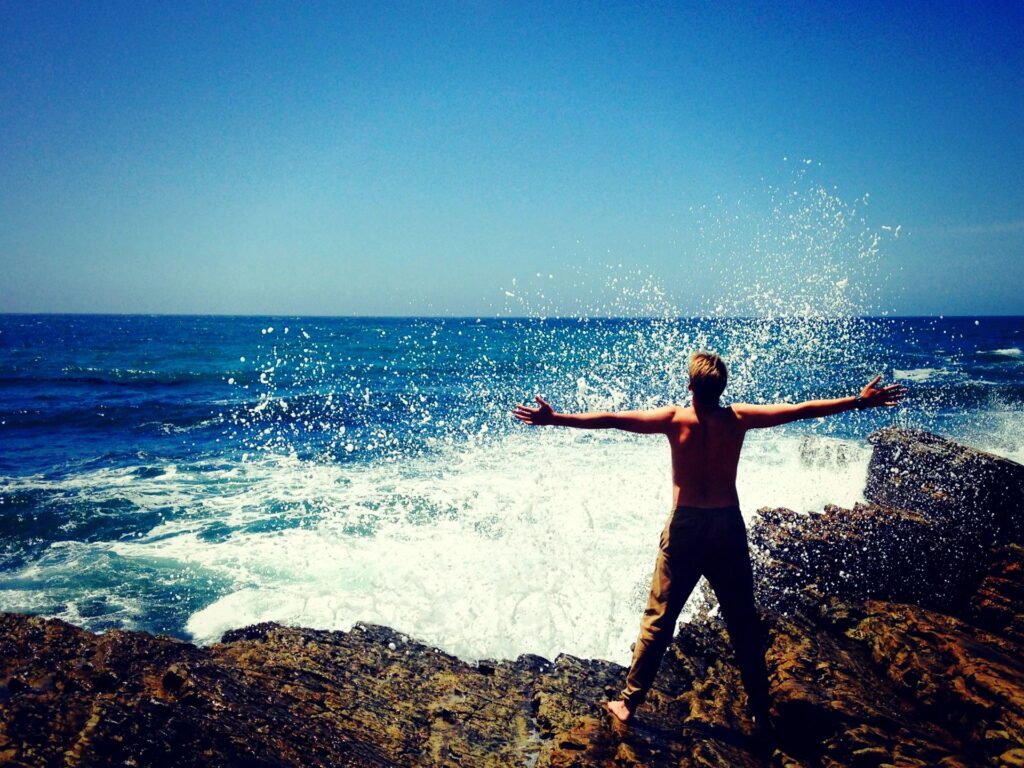THERE ARE ALWAYS BOUNDARIES. EVEN IN THE WILDERNESS. When we commit to getting closer, we’re committing to eventually experiencing real, face-to-face conflict. Whether it’s over dinner, at work, or in the grocery line, in-person conflict is always hard and uncomfortable. And when it comes to family—it’s even harder and more painful. If your family is anything like mine, you’ve been required to summon love and decency in the face of emotions that range from minor frustration to rage.
Maintaining the courage to stand alone when necessary in the midst of family or community or angry strangers feels like an untamed wilderness. When I get to the point where I’m like, Screw this! It’s just too hard. I’m too lost! I hear Maya Angelou’s words again: The price is high. The reward is great.
But here’s a question that came up for me during this research: Where is the line? Is there a line in the wilderness between what behavior is tolerable and what isn’t? The reward may be great, but do I have to put up with someone tearing me down or questioning my actual right to exist? Is there a line that shouldn’t be crossed? The answer is yes.
Participants who put true belonging into practice talked openly about their boundaries. In fact, this research confirmed what I found in my earlier work: The clearer and more respected the boundaries, the higher the level of empathy and compassion for others. Fewer clear boundaries, less openness. It’s hard to stay kind-hearted when you feel people are taking advantage of you or threatening you.Brené Brown
This past Wednesday we talked about something that doesn’t always get enough attention in our spiritual lives — boundaries.
Now I know, that word can make some people uncomfortable. It might sound like shutting people out or being selfish. But honestly, boundaries are one of the most loving things we can give ourselves — and the people around us.
When we set healthy boundaries, we’re saying:
“I matter too. My peace matters. My well-being matters. My time and energy matter.”
That’s not selfish — that’s self-respect. It’s compassion. It’s love.
And when we don’t set boundaries, we often end up stretched too thin. We feel resentful, overwhelmed, even hurt — sometimes deeply. We let things into our lives that don’t belong, and sometimes that leads to real trauma. But when we start drawing those lines clearly, with grace, we create room for peace, purpose, and healing.
And boundaries aren’t just about physical space. Sure, that’s part of it. But boundaries also show up in our thought life, our emotions, and even our inner conversations. What kind of thoughts are you letting live rent-free in your mind? Are they feeding your soul — or draining it? We have to be just as mindful about protecting our mental and emotional space as we are our time and physical energy.
Setting boundaries is about getting real with ourselves — remembering who we are, what we value, and where we’re going. It’s like realigning our inner compass. Saying:
This is what I stand for. This is what I won’t allow. This is what I need to stay whole.
And here’s the thing: Boundaries aren’t about pushing people away. They’re about creating the space where real connection can actually happen. When you know where you end and someone else begins, there’s room for authenticity.
In relationships, healthy boundaries are key. They help us avoid misunderstandings and drama. They make expectations clear. They help us show up as our best selves, without carrying weight that was never ours to hold. Good boundaries help relationships thrive — not fall apart.
And respecting other people’s boundaries? That’s just as important. It’s a way of saying, “I see you. I respect what you need. I won’t cross your line just to make myself comfortable.”
So here’s the question I want to leave with you:
Where in your life are you being invited to draw a clearer line?
What’s draining you that needs to be released?
What do you need to say “no” to — so you can say a fuller “yes” to your purpose?
Boundaries aren’t the enemy of love. They’re part of how we love well — starting with ourselves. Let’s be people who walk in wisdom, stay grounded in our values, and love with clarity and grace.
Special thanks to AI for assisting with summarizing my points. Special attribution is given to the Centers for Spiritual Living Global Themes committee and Sonia Harte, RScP for their substantial contribution to this post.




